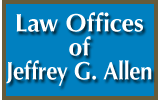


ROCKIN' THE
PLACEMENT PLANET!
Strict Federal Protection for
Your Trade Secrets
Let's say -- just hypothetically -- that someone went walking around muttering "This is why I went to law school." Would you think he was missing a few send-out slips?
Okay, it's me. Every decade or so it happens.
It happened in the 70's when our placement trade secrets act was passed into law. It happened in the 80's when Paul Hawkinson and I founded Search Research Institute. Then it happened again in the 90's at the groundbreaking of the National Placement Law Center building.
Now it's happening again. Only more.
Our trade secret's out. It's time you knew.
I've never reported on anything so important to maintaining your business. It will revolutionize the entire area of placement file protection. We will, we will rock you!
Today we're introducing the most powerful weapon ever invented in the fight against misuse of your most valuable asset -- your information. Not just your "customer list". E-v-e-r-y-t-h-i-n-g on your computers. It's the federal Computer Fraud and Abuse Act (18 USC 1030, et seq.).
Before we get into the CFAA, let's review.
1. Traditional Legal Theories
Our offices and others have been successfully enforcing rights against misuse of trade secrets for over 40 years. Enforcement can be and is effective in courts everywhere every day.
However " 'Tis better to have not tried at all than to have tried and failed." If your lawyer applies for a temporary restraining order (TRO) or preliminary injunction and it's denied, your ex will figure he can do whatever he wants. Why? The judge just told him so! Along with everyone else you both know. So it's a high roll and you absolutely must win. The burden of proof is the highest possible standard "irreparable harm" if the judge waits.
You'll also be alleging a violation of the "restrictive covenants" in your employment agreement. In the case of this breach of contract, there must be proof of:
-
A valid agreement (see Section 9),
-
Reasonable efforts to maintain secrecy of the information, and
-
One or more violations of the agreement.
And there's much more to prove when you allege the traditional major money theories like breach of fiduciary duty, conversion (civil theft), fraud, inducing breach of contract, interference with contractual relations, interference with prospective economic advantage, slander (per se), trade libel, unfair competition, conspiracy, etc.
You can also allege violations of the Uniform Trade Secrets Act (UTSA) that has been enacted in 44 states. Under the UTSA, the employer must show that the information sought to be protected (client names, contact information, names of hiring managers, candidate specifications, position descriptions; candidate names, contact information, job and career preferences, etc.) constitutes a "trade secret". (The only exception is in California where passage of Business and Professions Code, Section 16607 aka: "The Allen Law" defined them.)
The UTSA defines a trade secret as information that:
-
Derives independent economic value, actual or potential, from not being generally known to the public or to other persons who can obtain economic value from its disclosure or use, and
-
Is the subject of efforts that are reasonable under the circumstances to maintain its secrecy.
(Since there are 44 different state citations for every section of the UTSA, I can't give them to you here. Check your local law library or ask your lawyer for the statutes in your state.)
So "winning" means two things:
-
Stopping ("enjoining") the conduct, and receiving money ("damages") to compensate you, punish your ex; and
-
Make an example of him to discourage others from similar wrongdoing.
2. Why the CFAA is Such a Breakthrough
The CFAA was originally enacted by Congress in 1984 to protect classified, financial and credit information. The 1996 amendments expanded its reach to include any computer used in interstate commerce. That included any Internet connected computer.
It took until 2000 for the first decision to be published, but now over a hundred federal ones are reported. Precedents are emerging that we can cite in our cases and for TFL subscribers. (Certain published decisions are the only ones that can be cited in another case.) There are only a few published state court decisions. You'll see why as we discuss it further.
If there's any use of a computer to remove or copy data, the CFAA can be invoked. It's a strict liability statute. In simple terms, all you need to show is that the ex-employee:
-
Accessed your computer without authorization to do what he did, and
-
Caused damages of at least $5,000.
[18 USC 1030(a)(2)C)]
"Unauthorized access" is now broadly defined by the federal courts. One U.S. District Court in a published decision held that it included sending unauthorized e-mails transmitted through other computers until it reached a final destination. (America Online, Inc. v. National Health Care Discount, Inc., 121 F Supp2d 1255). So if you don't like what your ex did, it's probably unauthorized access.
The CFAA defines "damages" as "Any impairment to the integrity or availability of data, a program, a system, or information that causes loss aggregating at least $5,000 in value during any one-year period to one or more individuals." [18 USC 1030(c)(8)] You'll define them as "WOW!" Most small claims court limits are higher than that. A partial placement fee, a temp markup, a lost search assignment, a computer data retrieval, etc.
In EF Cultural Travel BV v. Explorica, Inc. (274 F3d 577), a U.S. Court of Appeals found that the award of consulting fees for a forensic analysis of data was appropriate even though there was no evidence that the company's web site or data had been compromised!
Before we leave this area, I'd like to tell you about two published decisions interpreting scenarios we see regularly in our offices:
The first is Shurgard Storage Center v. Safeguard Self-Storage (119 F Supp2d 1121). Employees of Shurgard left to work for Safeguard (a competitor). But before they left, they accessed the Shurgard computers including sending e-mails using Shurgard trade secrets. The Court held that they were therefore "without authorization" to access the Shurgard computers and in fact were acting as employees of Safeguard. This is what employer lawyers call "bad acts during employment". The court found that they were already working for the competitor while still collecting a paycheck from the current employer.
The second was U.S. Greenfiber v. Brooks (2002 WL 31834009). On the day she left Greenfiber, the ex-employee accessed the company's e-mail system to solicit its employees. She also refused to return company documents and electronic data. The U.S. District Court granted a preliminary injunction:
-
Requiring return of all company information, and
-
Preventing use of the information, directly or indirectly.
(The issue of damages is taken up at a trial. This decision was reported only after the pre-trial preliminary injunction hearing.)
3. What You Need in a Traditional Case that You Don't Need under the CFAA
As you can see, meeting your burden of proof in a traditional case is a challenge. Just think about the difficulty and suicidal tendencies required to obtain affidavits (formal statements under oath) from:
-
Past, present and prospective clients.
-
Past, present and prospective candidates.
-
Past, present and prospective temporary employees (if you place them).
-
Witnesses to removal of documents, hardware or other property (employees, security guards, janitors, etc.).
-
Private investigators.
And where are your:
-
Written policies regarding confidentiality in employee handbooks and memos?
-
General written warnings periodically circulated to employees?
-
Specific written warnings when breaches of security occur?
-
Copier and telephone monitoring procedures?
-
Exit interview checklists?
-
Warning letters upon termination?
It's difficult to run a happy hospice when you spend the workweek suffering from an acute case of paranoia. So most owner-managers are unable to produce too many nastygrams on the way to the courthouse. Still, as the plaintiff you have the burden of proof by a "preponderance of the evidence".
Ex-employees who steal are likely to lie too. Therefore don't expect the primordial "discovery process" to either "discover" or "process" anything from your ex that you'd like to see or hear.
But under the CFAA, there is no requirement that the information was used or even disclosed. Only that it was taken in some way (physically, downloaded, etc.). Poof! Proof!
4. Concurrent Jurisdiction and the Abstention Doctrine
Concurrent jurisdiction simply means that both state and federal courts can hear cases under the CFAA.
That means you have seven options on where to file your claim:
-
Your local state court.
-
Your closest U.S. District Court.
-
Your local state court along with traditional claims.
-
Your closest U.S. District Court along with traditional claims.
-
Your local state court if you're already litigating there by "amending the pleadings" (either by "stipulation" or agreement with your ex, or an easily-granted court order).
-
Subsequently (then simultaneously) in your closest U.S. District Court if you're already litigating in your local state court.
-
Simultaneously in your local state court as to the traditional claims and your closest U.S. District Court as to the CFAA claim.
The last two options are subject to the abstention doctrine. (No -- it's not what you tell your teenage daughter but will work just as well.) It simply means that under certain limited circumstances, the federal court will "abstain" from hearing a case when a state court action is pending.
The U.S. Supreme Court laid out abstention guidelines to the lower federal courts in the seminal case of Colorado River Water Conservation District v. United States (424 US 800). In doing so, it stated that abstention was an "extraordinary exception" to the "virtually unflagging obligation [of federal courts] to exercise the jurisdiction given them" (424 US 817).
Thus the "pendency" of an action in a state court, even when it concerns the same matter as the federal action, is ordinarily no "bar" to the federal action. The potential for a different result, or two courts simultaneously deciding the same issues, does not warrant "staying" (suspending) or dismissing the federal action.
5. Choosing Which Court to Use
Federal if you can prove computer abuse immediately (see Section 10). Issuance of a U.S. District Court Preliminary Injunction? Like against Microsoft or something? Enforceable by a uniformed, armed federal marshal? Oh, I think so. I really do.
Otherwise, the state courts are fine to obtain an injunction quickly under traditional theories.
The reason there are only a few published state court CFAA decisions should now be obvious: Anyone smart enough to use it is smart enough to know that it's the fastest, easiest, surest way imaginable to end-run around the many barriers that prevent smaller, local cases from being considered by federal courts. State court judges stay away from deciding a "federal question" too, because they're unfamiliar with the subject. The CFAA raises federal questions (issues).
Most lawyers never experience the high-class world just beyond the federal courthouse security checkpoints. The clerks are professional, the judges are the finest, and the lawyers show respect. The courtrooms are huge and quiet. After two centuries of activity, they're very efficient too. Every time I empty my pockets and take off my shoes, I just wanna shout "This is why I went to law school!"
6. Selecting the Right Lawyer
If you think My Cousin Vinny was a documentary, change lawyers. If you're going to star in anything, let it be a rockumentary!
Remember " 'Tis better to have not tried at all . . ." You can't afford to make a mistake in choosing representation.
If your lawyer really practices federal law, great. You can usually tell by calling him. Say "18 USC 1030". If he replies "Go Trojans!", you're the one who should pass. Other clues are gibberish about needing "diversity of citizenship", proving at least $75,000 "in controversy", or a request for directions on how to get to the courthouse. Asking a lawyer whether he practices in the federal courts is like asking a recruiter if he does retained search.
You don't want to have your lawyer starting a federal case without a working knowledge of how the substantive law, federal procedure and local court rules work. Knowing the local "federal bar" helps too, since the judges are honored members.
Federal judges are lifetime appointees of the President of the United States and approved by the United States Senate. Most are picked because they were the best judges in the state courts. They sit up high and far away. They look down at you. In black robes. With armed guards. They can be brutal if you're unprepared, waste their time or try to fool them. It's bad enough that you'll be paying your lawyer's tuition to the College of Placement Knowledge, but he's got to know the rules of the road on the U.S. highways. And his GPS system must be locked on that red octagon marked "STOP".
As I noted in The Employee Termination Handbook:
The public has the impression that a court is like a giant automated teller machine. Just plug in the right facts and law, and the cash will appear. Trial lawyers are disabused of this impression rather violently during their first court appearance. This is the difference between science and art in the practice of law. The proof and interpretation of the law are critical.
So check around and find someone who has a reputation for winning. Ideally someone with at least 10 years of federal plaintiff business litigation experience. A firm of five lawyers or so (less means poor coverage, more gets confusing). If your calls are not returned within a few hours, find someone else. Don't obsess about hourly rates. Hourly rates are a lawyer's game since he's keeping track of the time. The key isn't effort, and it certainly isn't time. It's results. Expect to pay for them, but expect them!
7. Checking Out the Judge
As soon as your case hits the courthouse, you'll be assigned a judge and possibly a "magistrate" (assistant judge) to hear less critical matters. You will then begin to learn why I say "Fear not the law but the judge."
This is particularly true in the almighty federal courts. The judges have well-known proclivities, everyone in the courthouse knows them, and gossip reigns.
You owe it to your future to wander those halls of justice, talk to the clerks and bailiffs, and familiarize yourself with the lay of the land. You might go into a few open courtrooms and sit in the back too. If your judge is holding court, listen well. Don't wait until your first hearing to go, either. It could be your last.
While you're there, go to the law library and ask for the Almanac of The Federal Judiciary. Volume 1 contains the U.S. District Court "Profiles and Evaluations of All Judges of the United States District Courts". Read it and take notes as though you were reference-checking a CEO candidate.
Was your judge a "Carter appointee"? A "Reagan appointee"? Those two Presidents chose very different judges. More recent Presidents chose judges a bit more centrist in their views, but where do they come from? Where did they go to school? Were they criminal prosecutors or insurance defense counsel? What are their values? Their hobbies? Who are their heroes? What do they like about the lawyers who appear before them? What do they want to see from them? What makes them bang their gavel? Have they written any landmark decisions? Which ones? Are they "reversed on appeal" (dinged by the Court of Appeals for making a bad call) often?
If lifetime-appointed federal judges are anything, they're outspoken. It's all there in the Almanac just for the looking. It even has comments from attorneys who appeared before the judges. (Not necessarily a good referral source though, since it's not the judges evaluating them.)
Ask the librarian for articles about the judge, legal treatises he may have written, and anything else that will help you understand him. Career law librarians are so helpful. Many know every syllable in the library. Just asking will usually get you all the information you need.
If it doesn't work, go over to the stacks and whisper confidently "This is why I went to law school." Your subconscious believes everything so itwill give you the confidence tolook for the information yourself.
Why is checking out the judge such a trade secret? I'm still stupified silly by the number of lawyers who enter a courtroom without knowing at least as much about the judge as they do about the case. Even pre-schoolers know to study the teacher before they study the blocks! Go figure.
Don't leave it to chance. Share your findings with your lawyer. It'll lower your fees if he thinks you're hip. And it could win your case.
8. CFAA Criminal Penalties Too
If you're not already dancin' on your desktop, this should do it:
The CFAA also has a long list of criminal penalties. Violations can have devastating consequences. They include massive fines and up to 10 years imprisonment in a federal penitentiary. [18 USC 1030(7)(c)(1)(A)]
This is a matter for the U.S. Attorney's Office in that closest federal courthouse. The office may be too busy to prosecute your case, but the staff is great. Whether you get more assistance will depend on your persuasiveness, your presentation and your persistence.
If you're serious about pursuing this, personally visit the local U.S. Attorney. Make a friend. You have no idea how few a tough prosecutor has. Don't waste his time. Do your homework like a most-placeable-candidate preparing for an interview. Document all of the facts, circumstances and evidence. Your lawyer shouldn't get involved (unless he has connections there), since the deputy is more likely to tell you it's a civil matter.
Your goal should be to get a letter -- any letter -- written to your ex on the U.S. Attorney's letterhead. Just mentioning your business name and the words "Have a nice day." would be fine. With that letterhead, no injunction will be needed.
Now let's pay attention to prevention.
9. Having an Employment Agreement
There are a few things you must know:
The most important thing to know is that you absolutely need an employment agreement. It's like having an insurance policy. Actually, it is an insurance policy -- a business interruption one.
The next most important thing to know is that consistently 80% of the ones we review are either unenforceable or -- even worse -- illegal. Some are the product of a store-bought software package, a one-size-fits-all Internet download, a form from a do-it-yourself book, a seminar that blew into town, a network/franchise/association package, or just some well-intentioned lawyer's idea of what will work. Others cost a fortune and read like your office lease. 20% are fine.
Even our agreements -- as effective, state compliant and industry specific as you might expect after three decades -- are automatically updated for our clients. Like all of the agreements in this area, they're only as good as:
-
The latest federal or state law on the subject. (Each state has separate laws.)
-
The latest federal or state reported court decision on the subject. (New ones are published regularly.)
-
The latest federal or state regulation. (From the many governmental agencies involved with employment matters.)
-
The latest federal or state administrative ruling. (From those many governmental agencies.)
If you have employees in several states, multiply the complexity by that number.
Employment agreements are an art form. They must be enforceable to the extent that the limits of the law will allow. They must also be marketable to new and current employees, so they sign without changing the terms. (Major equal employment issues with different agreements for different employees. Major morale problems too.)
If (and only if) you're convinced that your current agreement is valid, insert the following language where appropriate:
Name of employee understands and agrees that the unauthorized use or disclosure of any information contained in the name of your business computers will be subject to the provisions of the federal Computer Fraud and Abuse Act (18 USC 1030, et seq.) that provides injunctive relief, civil damages and criminal penalties for violations.
Don't write a law review article here. Less is more. More will cause your employees to go running to a lawyer, and will impede signing the agreement.
A simple statement like this enhances your agreement by placing the employee on notice that the CFAA will apply. The honest warning can only mean:
-
You know your rights, and
-
You intend to enforce them.
Please have someone knowledgeable review your employment agreement now.
80% is the statistic. Believe it.
10. Establishing Immediate Evidence of Unauthorized Use
Think about the damage someone with a $50 flash drive and a few minutes can do. Your database could be twirling on some whistler's keychain before you finish this article. Telecommuter recruiters don't even need that.
You need to move f-a-s-t if you expect an injunction to "issue". It's a cold day in the courtroom when the judge looks down at your lawyer from on high and bellows "Where were you a month ago, counsel? You want me to stop the conduct now? Why can't this wait until trial?"
If you're going to nudge a judge, you'd better be prepared to budge a judge. Or you'll know what it means to grudge a judge. Again " 'Tis better to have not tried at all . . ."
Third-party forensic computer analysis takes weeks and sometimes months. If your ex has possession of the computers, just getting access may require a court order. Time is on their side, since they make placements, make money, make calls to your current employees, make client and candidate friends, and generally make your life miserable.
Yet you don't need to deal with your ex if you set up your system properly. It costs less than one small placement fee. You can be in court at the first opportunity with sufficient proof to convince the court to issue an instant injunction.
The consensus from our experts is that you need a separate server, locked up, that gives you central backup and security throughout your network. This is to automatically and reliably control access to files, track use (who, what, where, when and how), block the use of data storage devices, and prevent deletions. It will stop current employees from making plans as well as "placements in the basement". It will also deny access to ex-employee competitors.
The current gold standard for this is the Microsoft Small Business Server (SBS), and is cyber-years ahead of the pack. If you have five employees or more, it's a minor buying decision that's essential. You might also check out web-based systems, but our clients give them mixed reviews.
Aside from your peace of mind and protecting your livelihood, the server can give you an instant printout of the "unauthorized use" the CFAA requires.
Written information about computer security is usually outdated faster than an employment agreement. The mass-market books don't have the detail you need, but we found two excellent textbooks: Security Plus: A Guide to Networking Security Fundamentals by Mark Ciampa, and Principles of Information Security by Michael Whitman and Herbert Mattord. Both of these are available for $80.95 each from Thomson Learning, Inc. at (800)648-7450.
What? Can it be? I've stopped muttering! And you've got the moves.
Let's ROCK!




